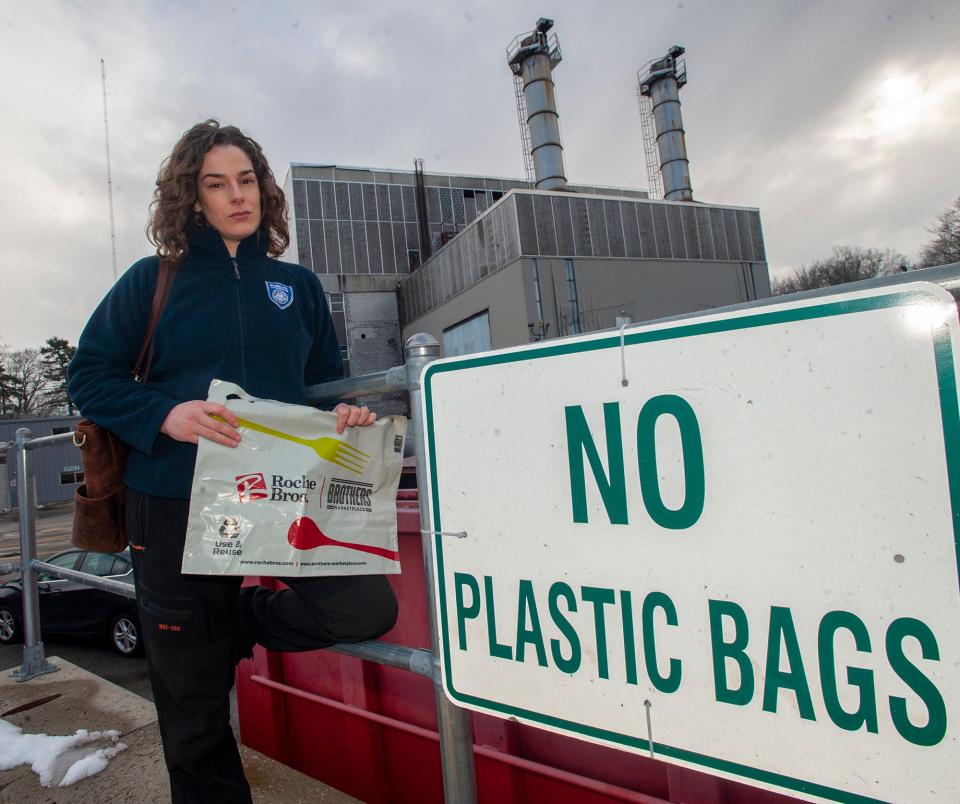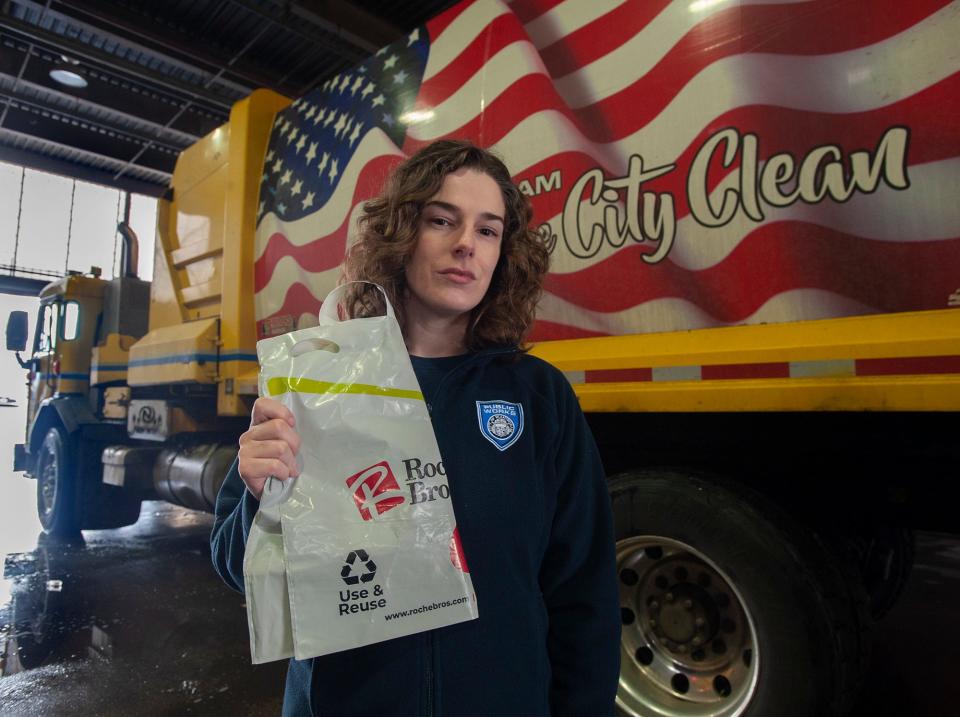Plastic bags, despite products' claims, shouldn't be recycled curbside. What goes in bins
Editor's note: A previous version of this story incorrectly stated that residents could bring No. 7 plastics to the city's recycling drop-off center on Mt. Wayte Street. That is not the case.
FRAMINGHAM — The city's recycling coordinator is warning residents not to believe everything they read when it comes to plastic bags.
Eve Carey, Framingham Public Works' recycling coordinator, recently told the Daily News that residents should not put their recyclables inside plastic bags before placing them in curbside bins. That includes Hefty Recycling Bags.
"I have personally encountered several residents who are irate at being told that these bags are not recyclable in their curbside bins because they specifically bought the recycling bags," she said. "Most consumers are purchasing these bags specifically because they believe they are recyclable, and it is absolutely reasonable for them to believe this because of the way the product is presented."

Public hearing planned: Framingham considers changing parking rules for first time since 1988
Carey said the bags do have a small disclaimer. But she believes Hefty knows that if it was more transparent about its bags not being recyclable at curbside, there would be far less of a market for the product.
According to Hefty's website, the bags cannot be recycled and are for participating program areas only. The box the bags come in is recyclable, however.
Representatives from Reynolds Consumer Products, Hefty's corporate parent, could not be reached for comment.
Carey called the marketing of plastic recycling bags "greenwashing." Greenwashing is a term defined by the National Resources Defense Council as the act of making false or misleading statements about the environmental benefits of a product or practice.
Connecticut AG sued Reynolds Consumer Products for deceptive marketing
Connecticut Attorney General William Tong sued Reynolds Consumer Products last year, claiming the company falsely and deceptively marketed Hefty Recycling Bags despite having full knowledge that the bags were incompatible with recycling facilities in Connecticut.
"We in the recycling field have enough of an uphill battle educating the public on how to recycle correctly," Carey wrote in an email to the Daily News. "We certainly do not need companies purposefully confusing consumers with their partial truths just to make more money." Both of these companies have sections on their website that state their dedication to sustainability and transparency, so for them to be committing these acts of greenwashing is at best gross negligence, or at worst fraud."

Michael Szczepan, municipal manager at Hopkinton-based E.L. Harvey, the company that handles Framingham's recycling, said that when recycling materials are improperly bagged, the bags are tossed and the recycling materials can be considered contaminated. And in some communities, contaminated recycling can lead to fines.
What types of plastic can be recycled in Framingham?
According to the city website, items that can be recycled include aluminum and steel cans; glass bottles and jars; mixed paper; newspapers; magazines and flattened cardboard can be recycled. Glass bottles, jars and cans cannot have food residue.
Certain plastic containers can be recycled based on the number indicated in the center of a recycling triangle. Those numbers dictate the identify of materials or chemicals that are in each plastic item, how biodegradable it is, the level of leaching and for sorting purposes.
Framingham residents can recycle plastics with Nos. 1 (polyethylene terephthalate or PETE); 2 (high-density polyethylene, or HDPE) and 5 (polypropylene or PP).

Hard plastics with the No. 3 plastics are made with polyvinyl chloride (PVC) and cannot be recycled. Film plastics, or No. 4 plastics, which include plastic shopping bags, bread bags and produce bags, can be recycled at a grocery store, according to the city's website. And polystyrene/styrofoam, or No. 6 plastics, cannot be recycled because they have little value in the recycling market.
To find out when recyclables are picked up in your neighborhood, visit www.framinghamma.gov/201/Curbside-Recycling.
This article originally appeared on MetroWest Daily News: Framingham recycling official: Residents should skip bagging curbside

